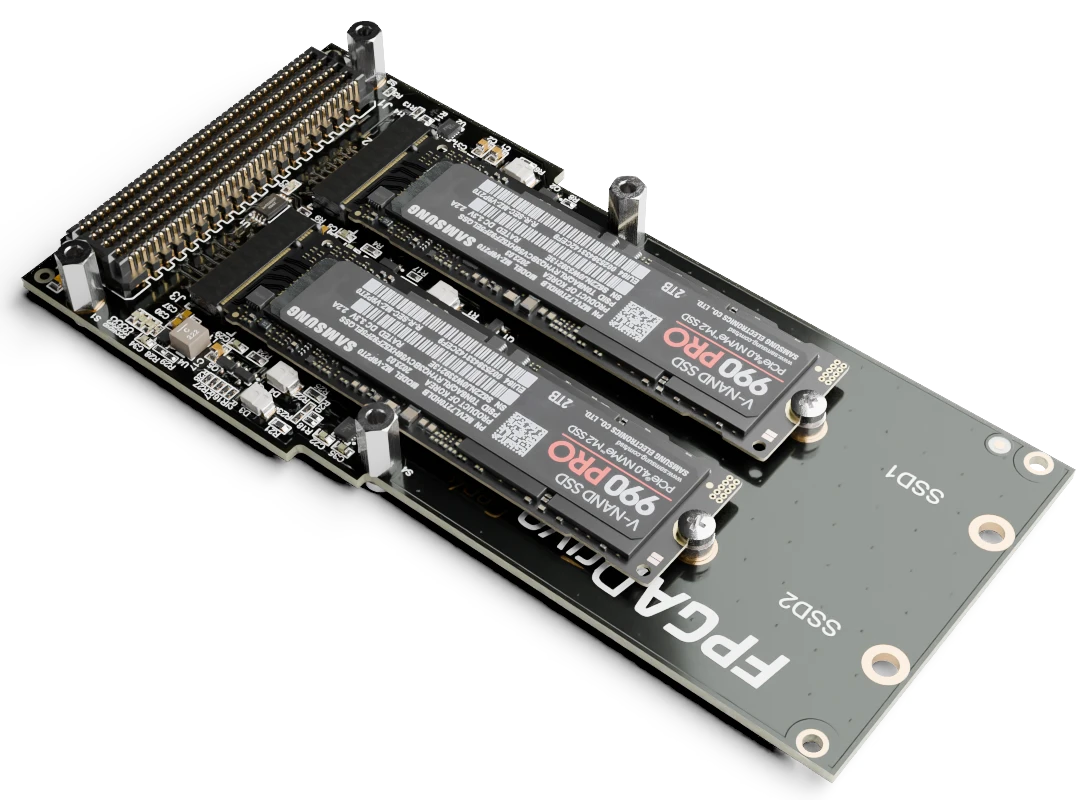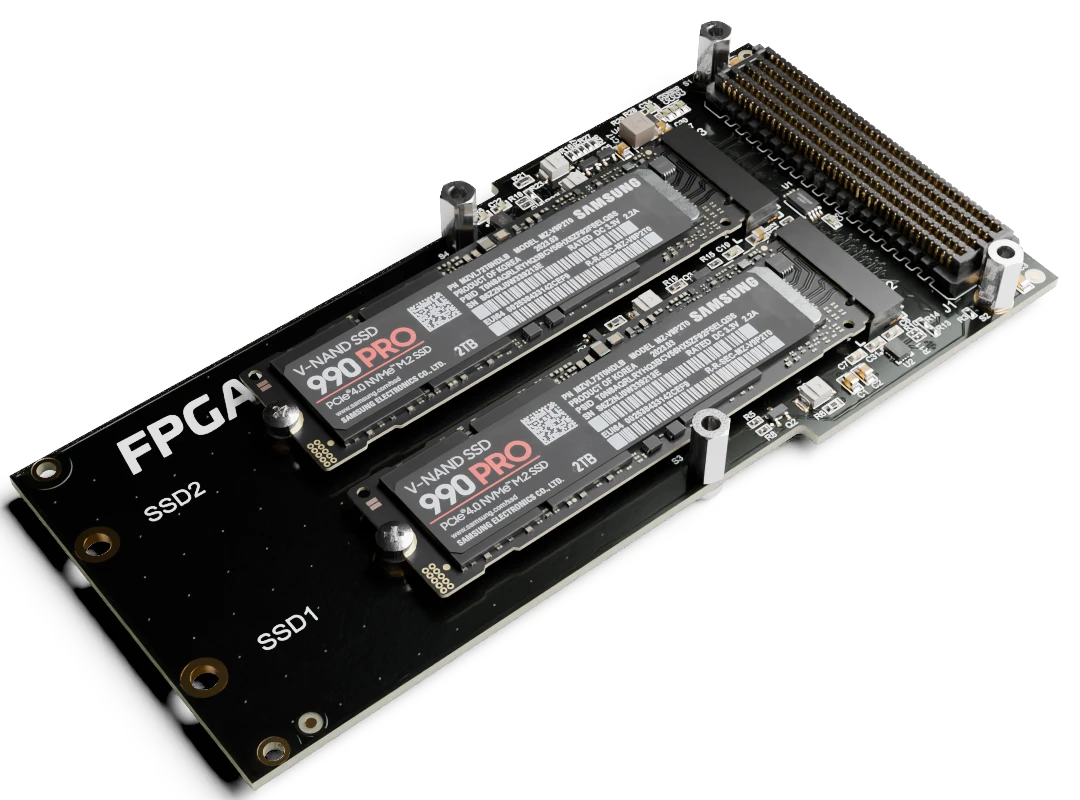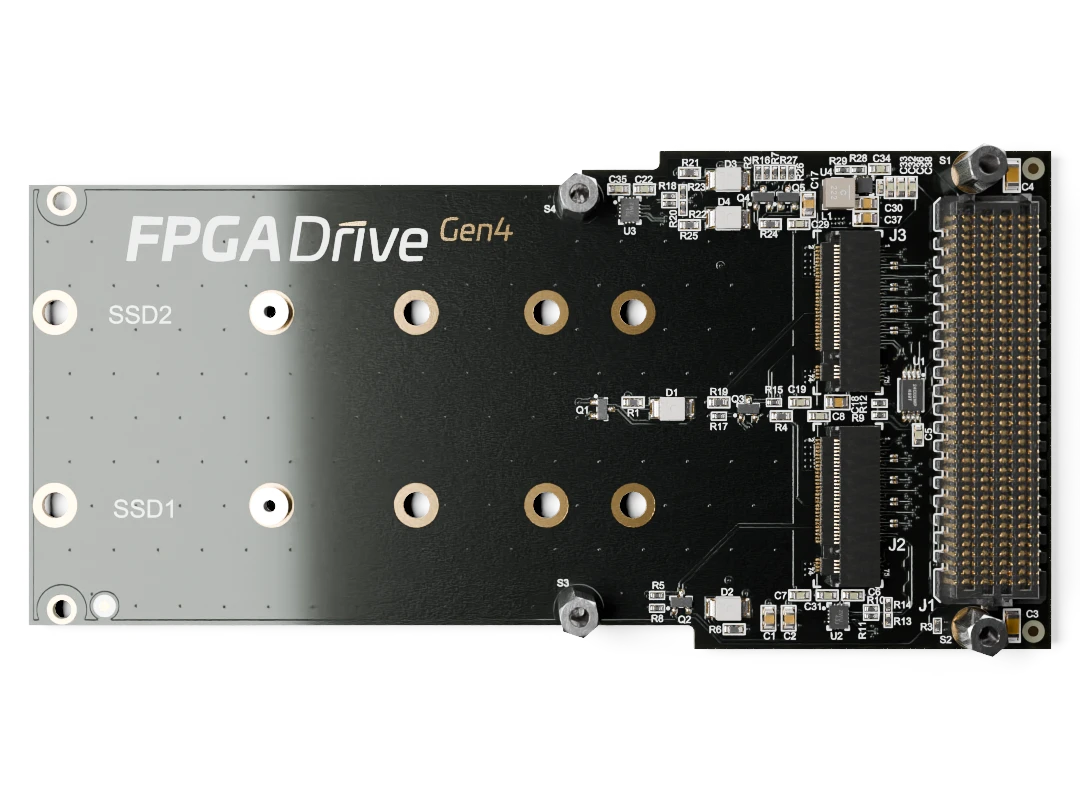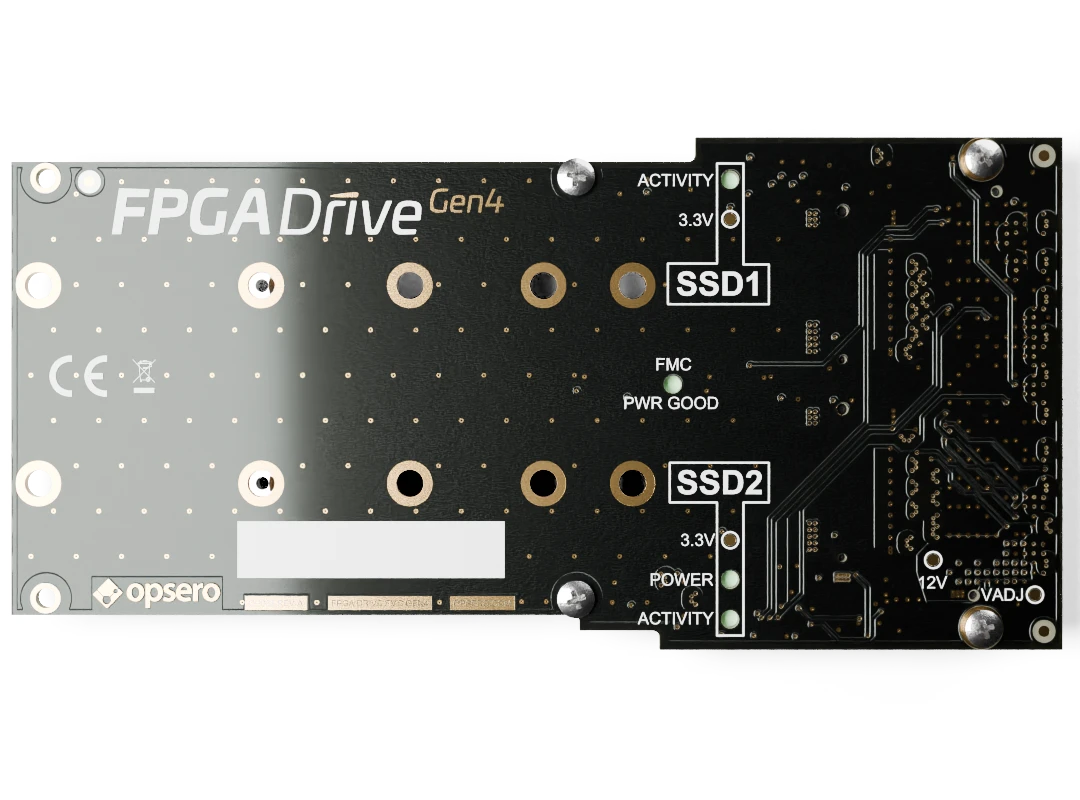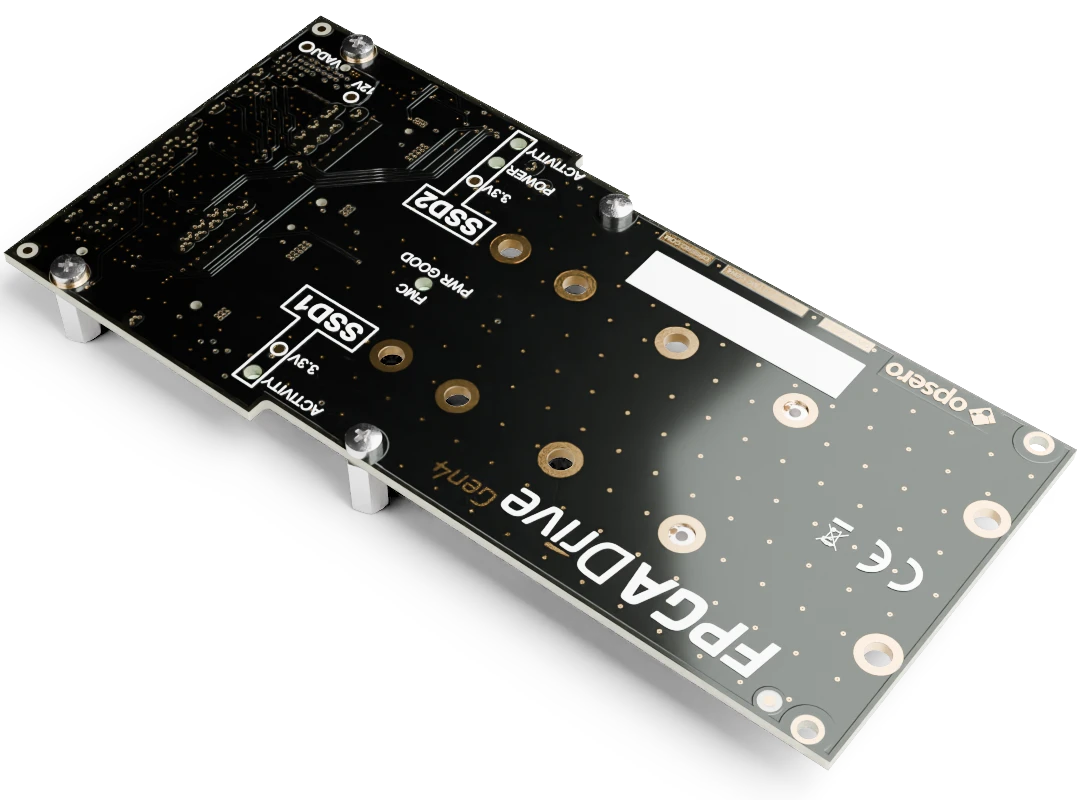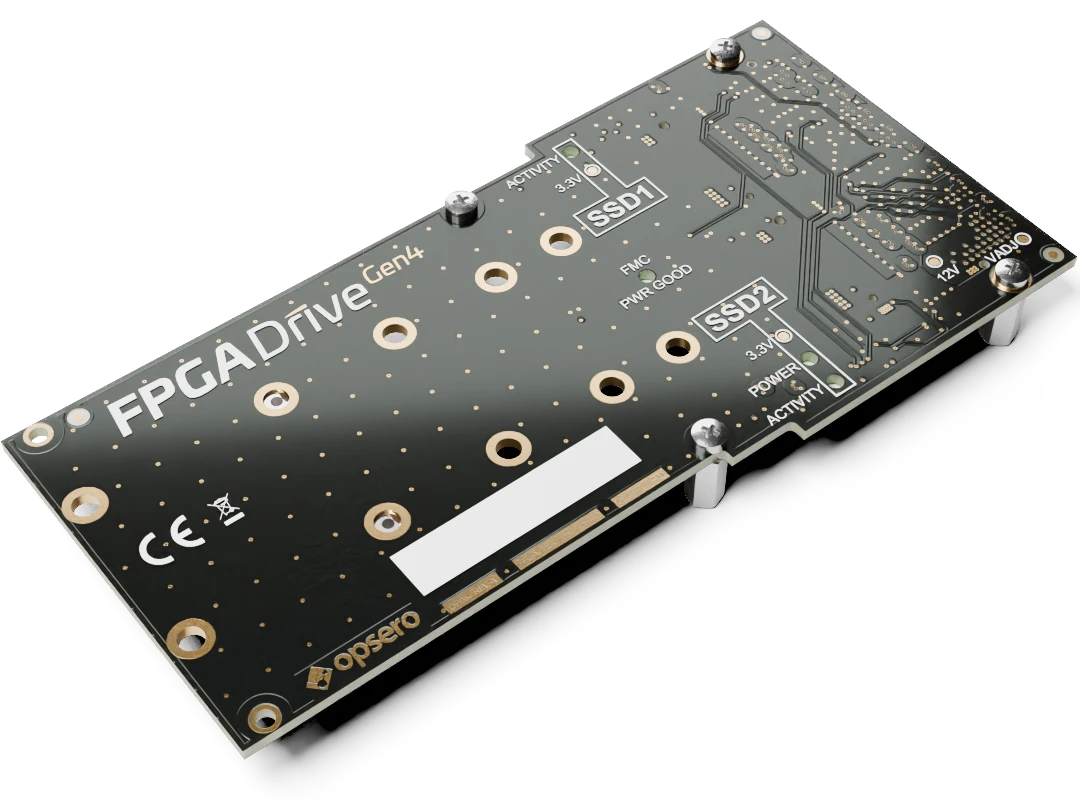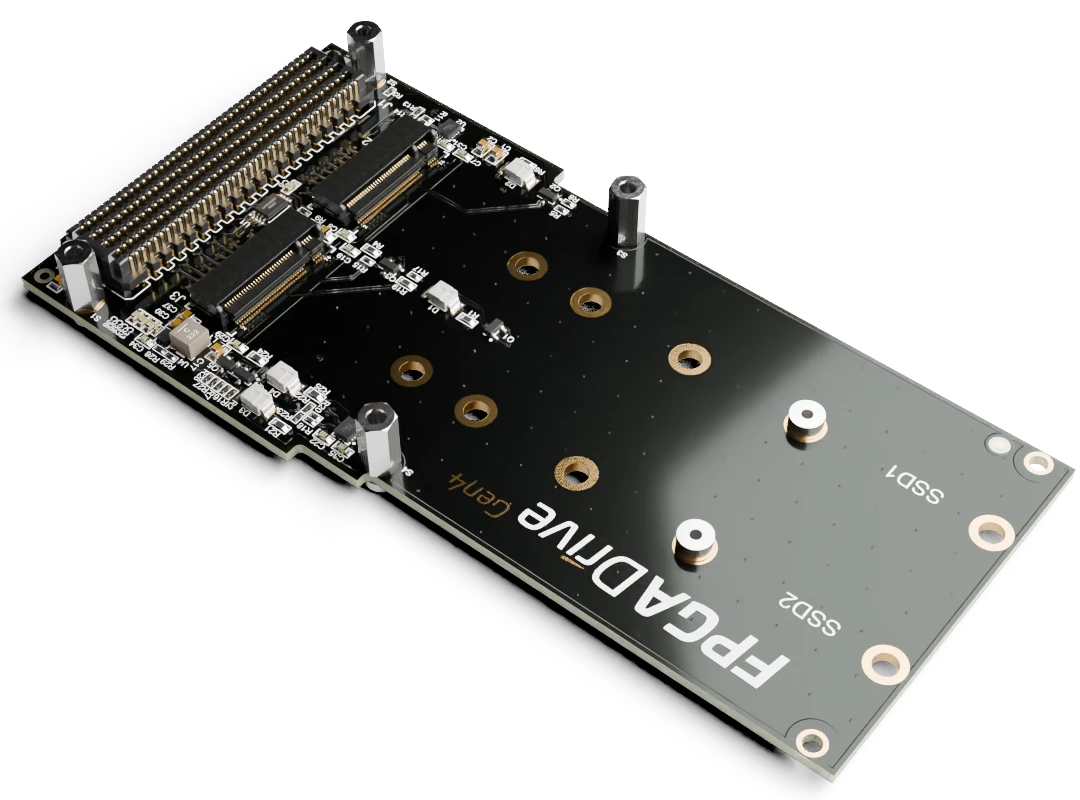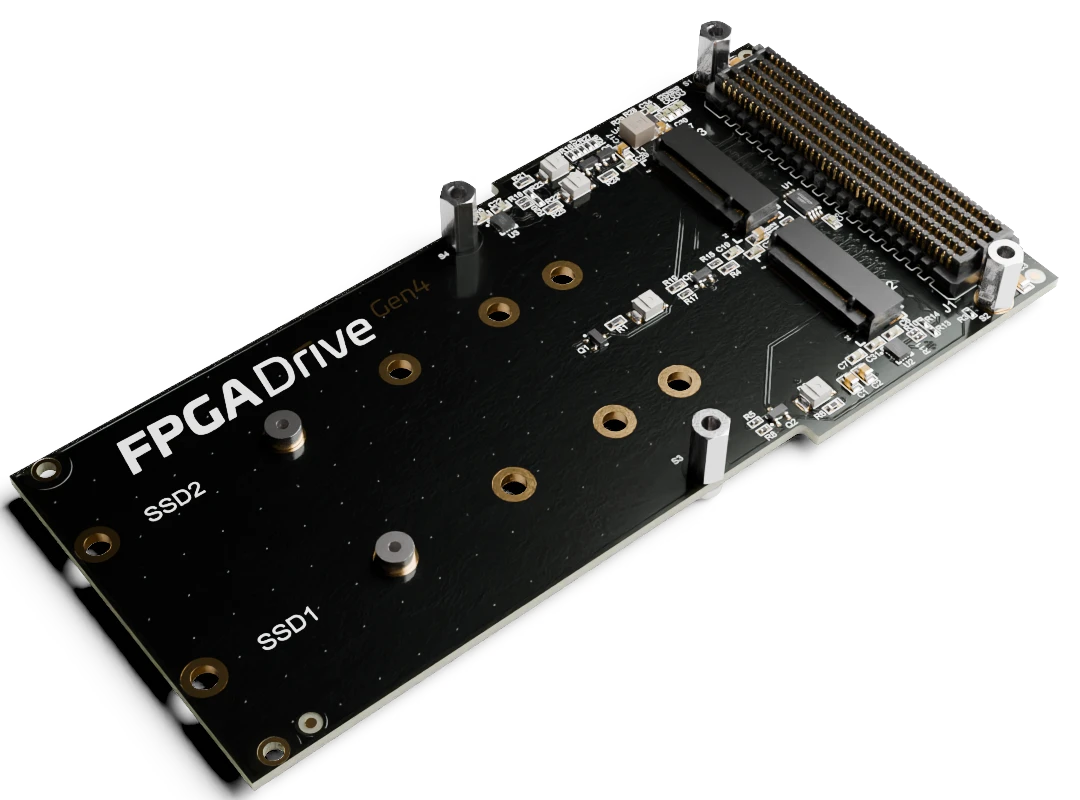| Part #: | OP063 |
| Description: | FPGA Mezzanine Card for connecting up to 2x M.2 PCIe solid-state drives to FPGA development boards with example designs for several FPGA and MPSoC evaluation boards. |
| Vadj: | 1.2-3.3V |
| Price: | USD $499.00 |
| HTS: | 8473.30.11 |
| Sched B: | 8473.30.0002 |
| HS Code: | 8473.30.00 |
| ECCN: | EAR99 |
| Origin: | Canada (CA) |
FPGA Drive FMC Gen4
Where to buy
| Opsero Direct: (Ships from Canada) |
184 pcs in stock (can ship immediately) |
| Digi-Key: (Ships from USA) | Buy it from Digi-Key |
Description
FPGA Drive FMC Gen4 is an FPGA Mezzanine Card that allows you to connect up to 2x M.2 form factor NVMe SSDs to your FPGA or MPSoC development board. Both of the SSDs have their own independent 4-lane PCIe link to the FPGA/MPSoC for maximum throughput. On-board 100MHz oscillators provide precision clock sources for the SSDs and the FPGA/MPSoC. For more detailed information, including specifications, technical documents, tutorials and example designs for the latest version of Vivado, please read the documentation.
- Supports 2x M.2 NGFF M-key PCIe solid-state drives (SSD not included)
- Supports up to 4 lanes PCIe Gen4 per SSD
- HPC FMC connector interfaces with LPC or HPC FMC carriers that have connected gigabit transceivers
- 2x 100MHz oscillators supplies clock for both FPGA and SSD
- EEPROM containing board identification
- Reference designs for several FPGA and MPSoC Evaluation boards
- Straightforward tech support
Frequently asked questions
What are the compatible target boards?
The compatible boards section of the product documentation lists all boards that are compatible with the FPGA Drive FMC Gen4, and it also describes the requirements for compatibility.
Where can I find the example designs?
The product website contains information about the example designs.
Where can I find the datasheet?
The datasheet can be found on the product website.
Do I need any purchased IP to use FPGA Drive?
The minimum requirement for interfacing an FPGA with an M.2 NVMe SSD is a PCIe IP core, however, these days many FPGA development boards have an FPGA with integrated PCIe block. If your FPGA board has an integrated PCIe block, and it can be routed to the gigabit transceivers of the FMC connector without timing issues, you will not need any purchased IP to use the FPGA Drive FMC Gen4. The reference designs rely on the Xilinx PCIe integrated block and they allow an M.2 NVMe SSD to be accessed in PetaLinux. In that use case, the NVMe protocol is handled by the operating system, or more specifically by the embedded microprocessor. If you have an application where the NVMe protocol must be handled in the FPGA fabric, you may require purchased IP.
What is the maximum read/write speed achievable with FPGA Drive FMC Gen4?
See this article for a complete answer.
What accessories come with the FPGA Drive FMC Gen4?
FPGA Drive FMC Gen4 comes with:
- 2x machine screws, Thread M2.5 x 0.45, Length (below head) 4mm, Stainless steel, Phillips head, for fixing the mezzanine card to the carrier card
- 2x machine screws, Thread M2.5 x 0.45, Length (below head) 3mm, Stainless steel, Phillips head, for fixing the SSDs to the mezzanine card
Loopback modules no longer included - the limited promotional period has ended. For an alternate loopback part, see M.2 Loopback Module 2230 M-key.
What does NOT come with the FPGA Drive FMC Gen4?
FPGA Drive FMC Gen4 does not come with a solid-state drive; they can however be easily purchased from several online retailers such as Amazon.
